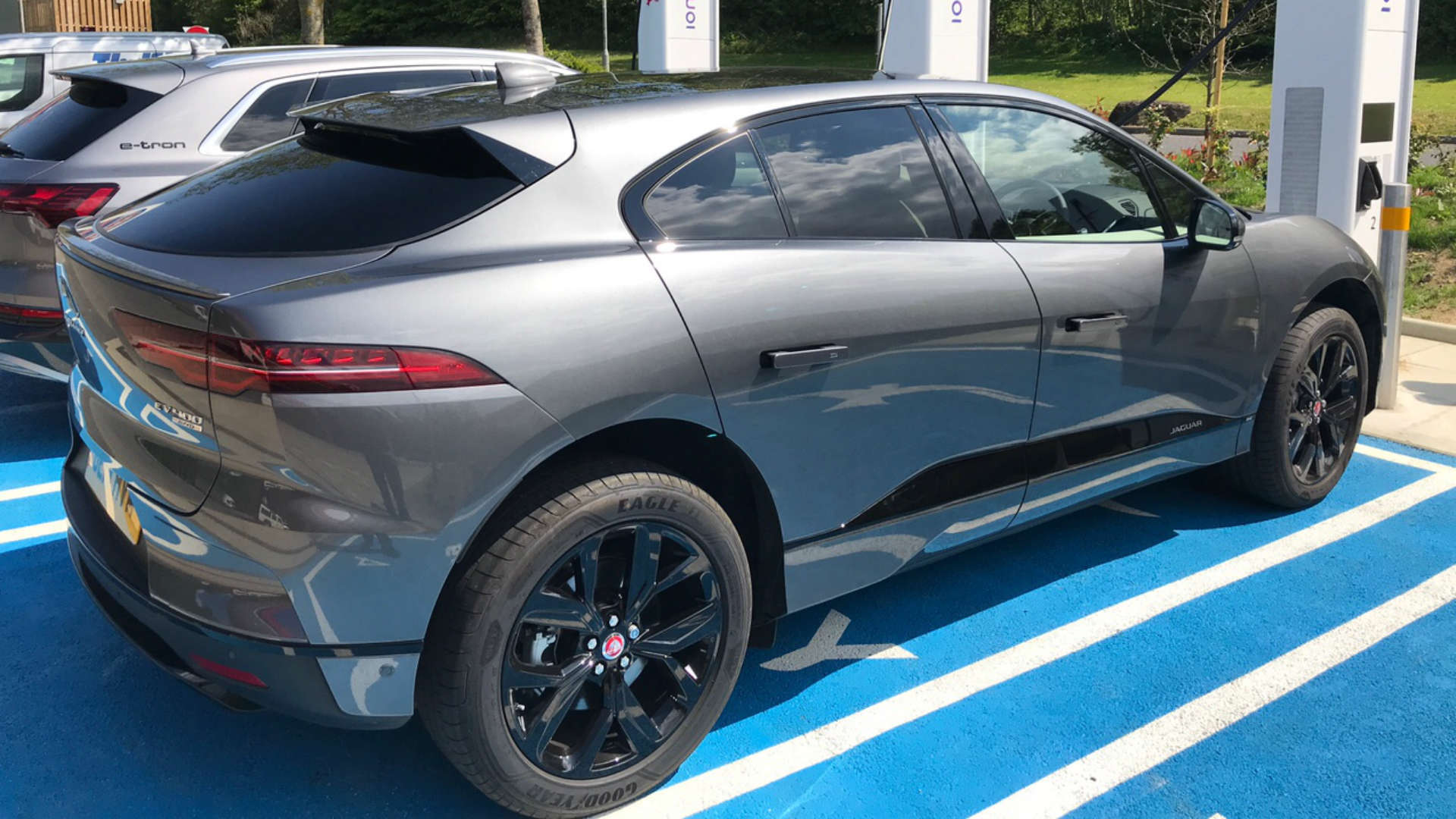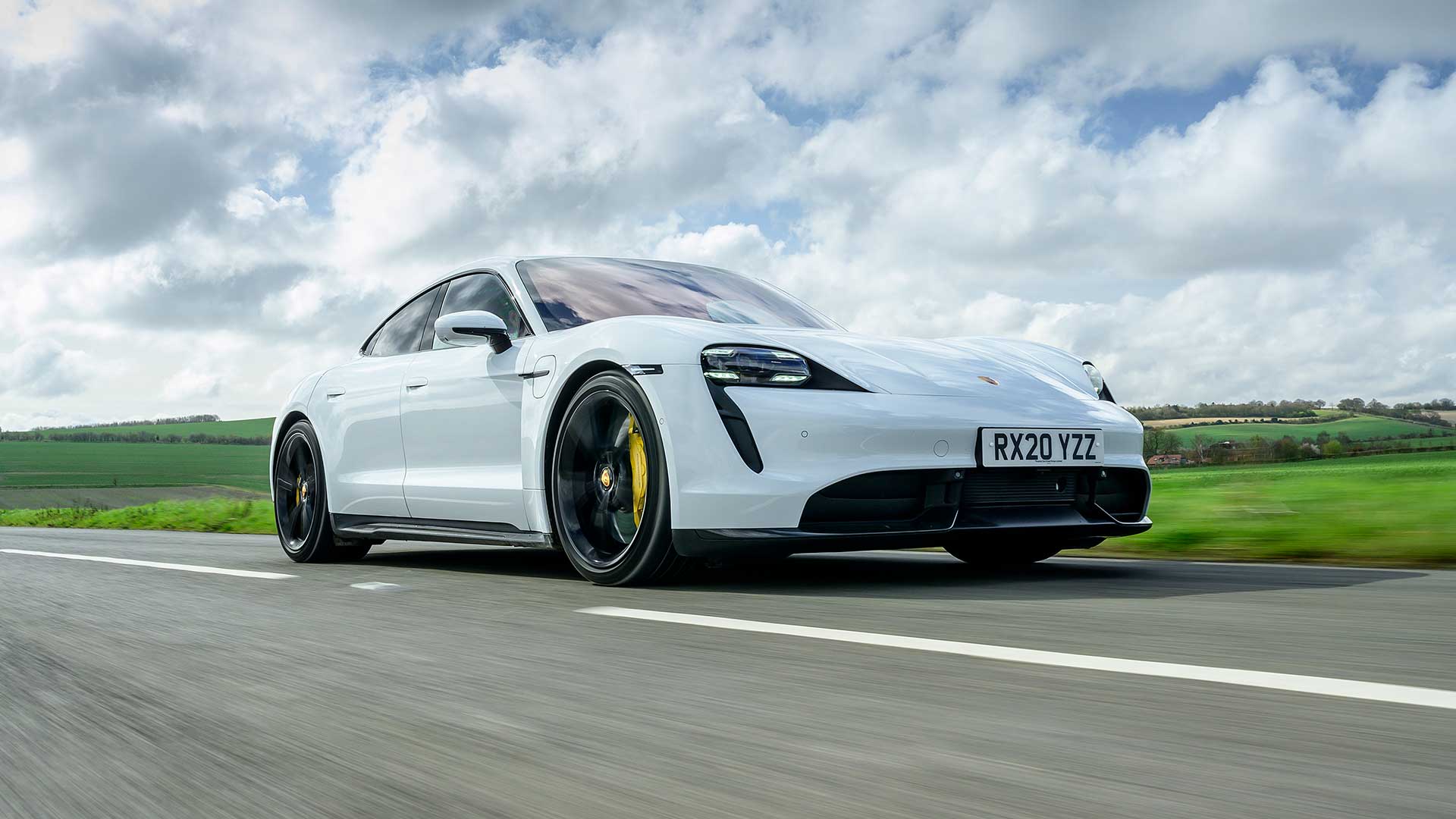There are now 14 Ionity 350kW electric car charging stations across the UK, with new sites currently being built at Alnwick and Polmadie (near Glasgow).
The company has more than 400 charging stations across Europe, with an average of six charge points at each one. Use of the 350kW chargers offers hassle-free pan-European travel, with around 100km (62 miles) of range available in just eight minutes, depending on the car.
What is Ionity?
Ionity is a joint venture between Mercedes-Benz, Ford, BMW, Volkswagen, Audi and Porsche, with its ultra-rapid chargers situated close to major roads. The plan is to install a charging station every 100 miles along the motorways and A-roads of Europe.
Although the UK provision is still fairly small, Ionity says it will create 40 charging stations here in total.
Where are the UK’s Ionity charging stations?

There are currently 14 350kW Ionity charging stations in the UK:
- Baldock
- Beaconsfield
- Blackburn
- Cambridge
- Channel Gateway (Folkestone)
- Chippenham
- Cobham
- Cullompton
- Gretna Green
- Leeds (Skelton Lakes)
- Maidstone
- Milton Keynes
- Perth
- Peterborough
Ionity is also building 350kW charging stations in the following locations:
- Alnwick
- Polmadie (Glasgow)
Which cars can use a 350kW charger?

The installation of 350kW chargers shows the electric car industry planning for the future. Right now, it isn’t possible to buy a car that can handle the maximum charging speeds offered by Ionity.
However, provided your car is equipped with a Combined Charging System (CCS) connector, it can use an Ionity charger. The charging point will automatically optimise its speed to the maximum the car can handle.
For example, the Porsche Taycan offers 225kW, while the Audi E-tron SUV can handle 150kW. Other electric cars like the BMW i3, Hyundai Kona Electric, Kia e-Niro, Mercedes-Benz EQC and Jaguar I-Pace can also use the Ionity network, albeit without the benefits associated with a 350kW charge.
Lastly, Kia has just added Ionity to its Kia Charge service, giving customers discounted access to the network. The Ionity add-on costs £11.25 per month – but slashes the price of Ionity charging by 64 percent, from 70p per kWh to 25p per kWh.
ALSO READ:
Kia Charge adds Ionity for cut-price ultra-fast charging


[…] Which electric cars can use Ionity ultra-fast 350kW chargers? […]
[…] such, the Nevera is capable of using 500kW charging architecture. When connected to a 350kW Ionity charger, replenishing its battery pack from zero to 80 percent takes only 25 […]
[…] the 670 Electrify America and 372 Ionity locations, Porsche owners now have access to more 4,800 individual charging […]